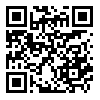Sat, Apr 20, 2024
[Archive]
Volume 2, Issue 4 (2-2021)
Int. J. Ethics Soc 2021, 2(4): 10-17 |
Back to browse issues page
Download citation:
BibTeX | RIS | EndNote | Medlars | ProCite | Reference Manager | RefWorks
Send citation to:



BibTeX | RIS | EndNote | Medlars | ProCite | Reference Manager | RefWorks
Send citation to:
Alizadeh T, Elahizadeh M. Effectiveness of Kohlberg’s Dilemmas and Inducing Positive Emotion in Emotional Expectation and Moral Decision Making. Int. J. Ethics Soc 2021; 2 (4) : 2
URL: http://ijethics.com/article-1-92-en.html
URL: http://ijethics.com/article-1-92-en.html
1- Farhangian University, Kosar Pardis, Yasuj, Iran , toran.alizadeh@yahoo.com
2- Farhangian University, Kosar Pardis, Yasuj, Iran
2- Farhangian University, Kosar Pardis, Yasuj, Iran
Abstract: (1532 Views)
Background: The aim of this study was to investigate the effectiveness of Kohlberg’s dilemmas teaching methods and induction of positive emotion on emotional expectations and moral decision making of adolescent girls.
Method: The research method was quasi-experimental (pre-test and post-test) with a control group. The statistical population was all female students in the first grade of high school (second year) in Yasuj province who were selected by multi-stage cluster sampling and randomly assigned to three groups (n=30). The experimental and control groups completed the scenarios of emotional expectations and daily ethical decision-making tasks as pre-test and post-test. Multivariate analysis of covariance was used to analyze the data.
Results: The data showed that Kohlberg’s hypothetical dilemmas methods and induction of positive emotion in the post-test stage were effective in improving emotional expectations and moral decision making (p <0.001). The results of post hoc test showed that there was a significant difference between the intervention groups (Kohlberg’s hypothetical dilemmas and induction of positive emotion) with the control group (p = 0.001).
Conclusion: Kohlberg’s hypothetical dilemmas teaching method and induction of positive emotion are effective on emotional expectations and moral decision making of first grade high school female students.
Method: The research method was quasi-experimental (pre-test and post-test) with a control group. The statistical population was all female students in the first grade of high school (second year) in Yasuj province who were selected by multi-stage cluster sampling and randomly assigned to three groups (n=30). The experimental and control groups completed the scenarios of emotional expectations and daily ethical decision-making tasks as pre-test and post-test. Multivariate analysis of covariance was used to analyze the data.
Results: The data showed that Kohlberg’s hypothetical dilemmas methods and induction of positive emotion in the post-test stage were effective in improving emotional expectations and moral decision making (p <0.001). The results of post hoc test showed that there was a significant difference between the intervention groups (Kohlberg’s hypothetical dilemmas and induction of positive emotion) with the control group (p = 0.001).
Conclusion: Kohlberg’s hypothetical dilemmas teaching method and induction of positive emotion are effective on emotional expectations and moral decision making of first grade high school female students.
Article number: 2
Keywords: Kohlberg’s dilemmas, Positive emotion induction, Emotional expectations, Moral decision making
Type of Study: Research |
Subject:
Special
Received: 2020/12/18 | Accepted: 2021/02/6 | Published: 2021/03/5
Received: 2020/12/18 | Accepted: 2021/02/6 | Published: 2021/03/5
Send email to the article author
| Rights and permissions | |
 |
This work is licensed under a Creative Commons Attribution 4.0 International License. |







